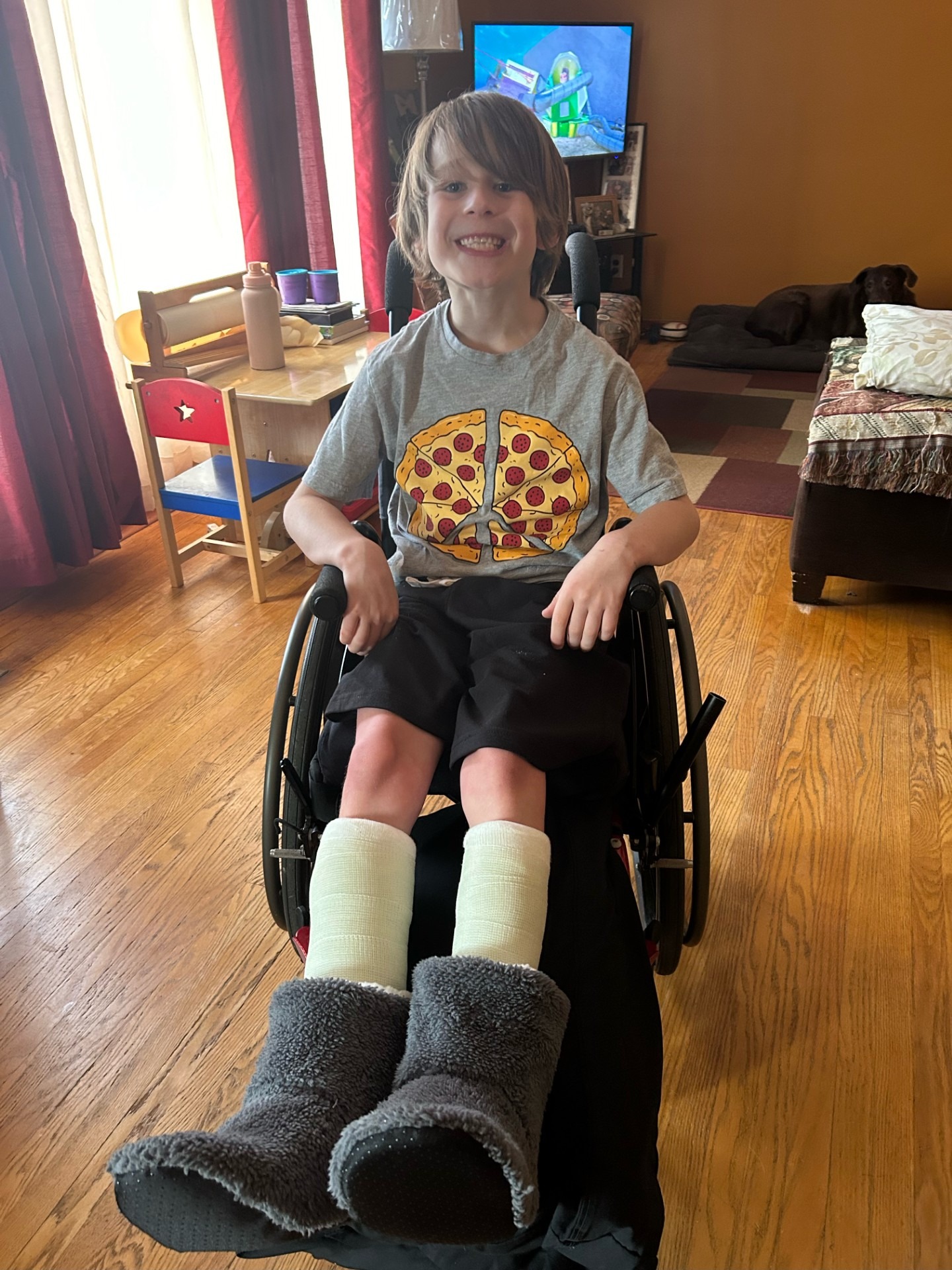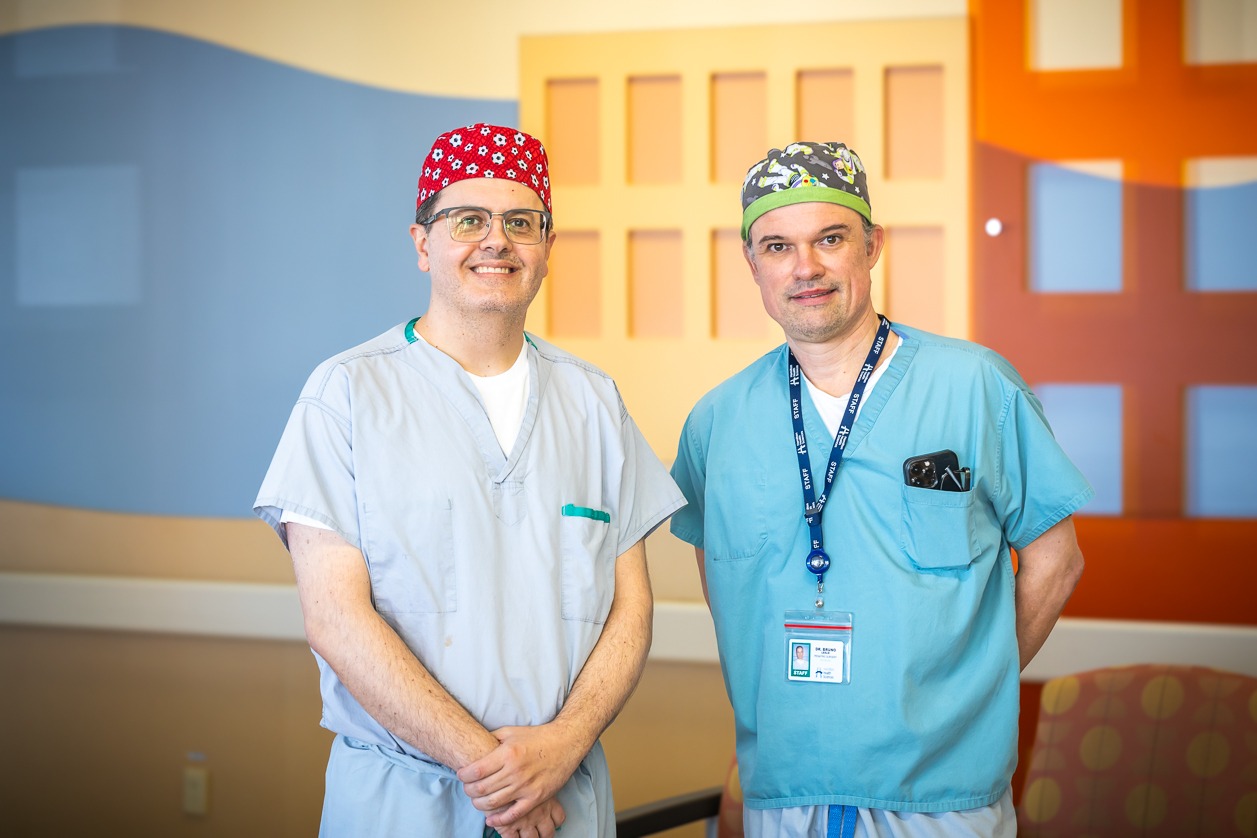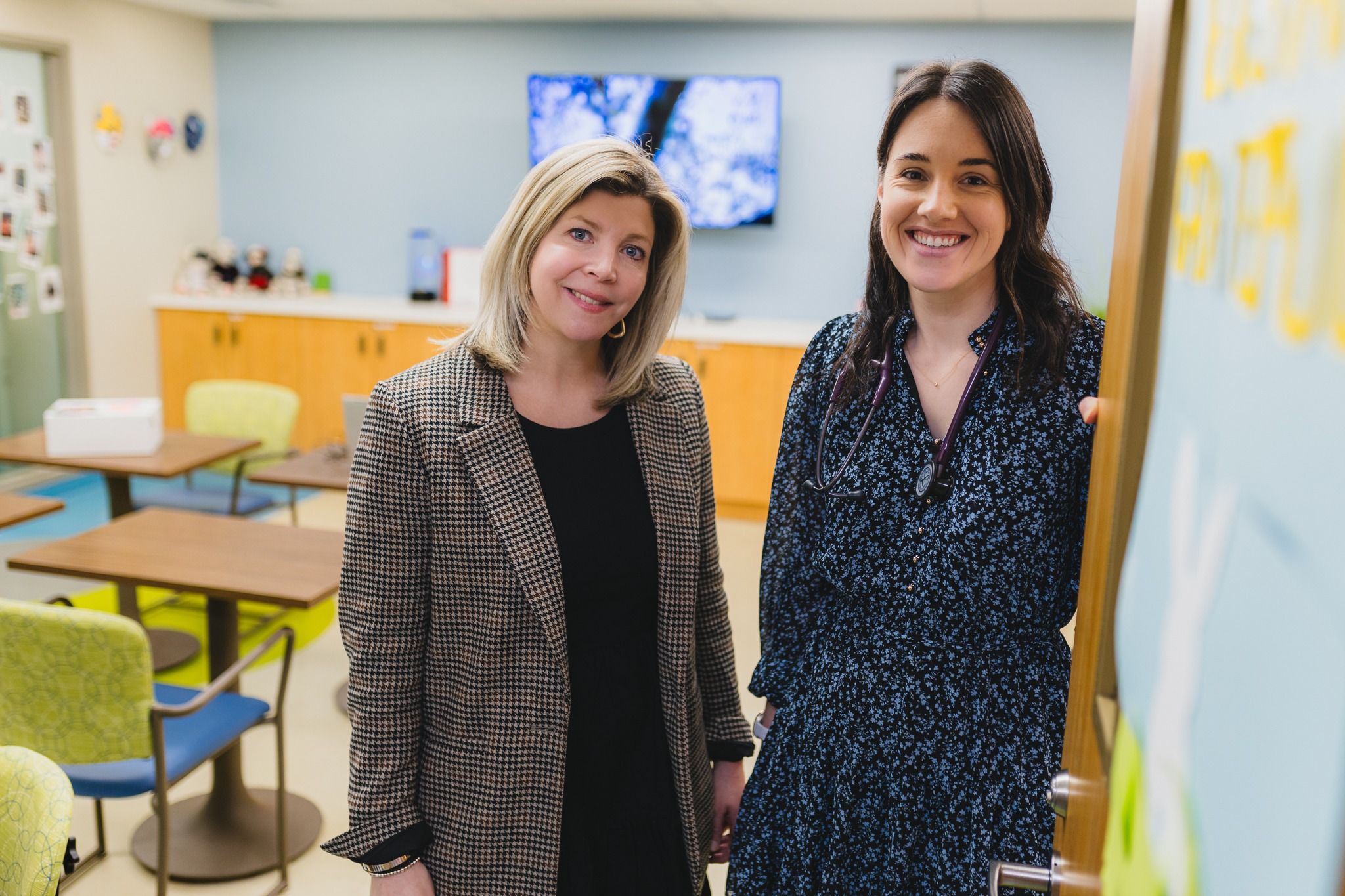
Elizabeth’s dance with scoliosis
Elizabeth’s life took an unexpected turn when, at the age of 11, she was diagnosed with scoliosis, a sideways curvature of the spine most often diagnosed in adolescents.
With long hair that covered her spine and displaying no symptoms, her family was completely blindsided when they were told that Elizabeth had scoliosis, which threatened Elizabeth’s active lifestyle as a competitive dancer and athlete.
“Up until August 2022, we knew nothing about scoliosis. When you get that diagnosis, you start reading up on it online. We were in shock and stressed at the impact scoliosis could have on Elizabeth’s life,” said Michael, Elizabeth’s father.
The Brantford family read about the importance of timely treatment to prevent the progression of scoliosis, which can lead to significant problems affecting breathing and heart function.
They also read devastating stories of wait times of up to two to three years across the province and country, with some children’s scoliosis surgeries cancelled at Hamilton Health Sciences’ McMaster Children’s Hospital multiple times because of bed shortages, often made worse during viral outbreaks in the community such as COVID.
They worried about what Elizabeth’s journey would be like.
Every day is a long time to wait and wonder
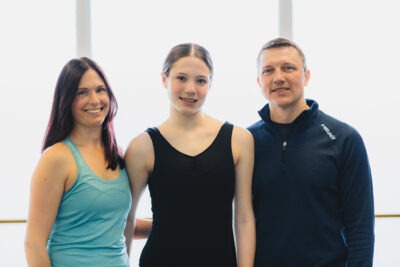
Elizabeth with her parents
Elizabeth’s family explored treatment options that might provide her with the best possible outcome. This led them to McMaster Children’s Hospital and Dr. Devin Peterson, one of two pediatric orthopedic surgeons who specializes in pediatric spines. Together, they perform approximately 50 scoliosis surgeries per year.
“Idiopathic scoliosis can be pretty minor initially. Then, when a child goes through a growth spurt, the curve can get very bad, very quickly,” said Peterson, who is also chief of pediatric surgery at MCH. “We know that providing timely treatment provides kids with the best possible outcomes and is most cost-effective for the healthcare system.”
Orthopedic surgeons commonly use a spinal fusion operation to treat scoliosis, realigning and fusing backbones together with metal rods and screws so that they heal into a single, solid bone.
In addition to spinal fusion, Peterson also performs ApiFix, a newer scoliosis treatment available at MCH since 2022.
Surgery available in time
Unlike traditional spinal fusion, ApiFix surgery uses a rod which can lengthen as the spine grows, offering increased mobility and the ability for the spine to rotate.
ApiFix surgery is best performed during a specific growth stage in a child’s development. The size and flexibility of the curve also affect eligibility, creating a narrow window of opportunity.
Additionally, the decision to proceed with ApiFix does not rest solely with the surgeon and patient. A thorough, multi-step, anonymous application process, including the government, designed to prioritize patients’ well-being determines whether the surgeon can proceed.
“When I saw Elizabeth’s dance, I was completely, one hundred per cent blown away. It’s beyond what I would ever expect somebody, post-scoliosis surgery, to be able to achieve.”
Out of the 50 scoliosis surgeries conducted at MCH in the past year, only four children have had ApiFix procedures, reflecting the careful consideration given to each patient’s unique needs and circumstances.
Maintaining Elizabeth’s ability to dance and play sports was a top priority. In consultation with Dr. Peterson, the family applied for ApiFix and Elizabeth was approved.
“We had come across stories where people may have been eligible for ApiFix, but because of significant wait times for surgery, they were unable to have it,” said Michael. “There was a lot of worry and stress. Every day is a long time to wait and wonder.”
Fortunately, thanks to a historic provincial investment of more than $48 million to the hospital, MCH has reduced the wait times for kids to receive the life-changing surgeries they need.
Elizabeth was able to have ApiFix surgery on April 21, 2023, eight months after diagnosis.
Fight Song: Elizabeth’s return to the stage
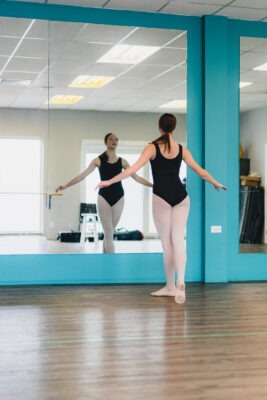 Elizabeth was up and walking the day after her ApiFix surgery and returned to school two weeks later. In the fall, she resumed school sports, including cross-country running, volleyball, and dance.
Elizabeth was up and walking the day after her ApiFix surgery and returned to school two weeks later. In the fall, she resumed school sports, including cross-country running, volleyball, and dance.
Elizabeth says her dance family at Studio 5•6•7•8 Inc. in Brantford was a source of love and support for her. When Elizabeth returned to dance in the fall, her ballet teacher suggested creating a special solo. The choreography, set to the inspiring melody of “Fight Song” by the Piano Guys, showcases Elizabeth’s strength and courage in overcoming scoliosis and returning to her passion for dance.
“When my teachers told me the song’s name, I started crying,” said Elizabeth.
March 2024 marked Elizabeth’s return to dance competitions, where she is competing in six numbers, including her Fight Song.
“On my first day back, I just couldn’t stop smiling because I hadn’t been on stage in so long. I was just so happy to dance and be with my friends,” said Elizabeth.
A significant milestone – no surgical cancellations
Looking back on the experience with scoliosis, Elizabeth and her family are grateful for the timely access that everyone deserves.
“Someone, somewhere, is branded with a different quality of life simply because they had to wait, and their life could be very different,” said Michael.
“We don’t know what Elizabeth’s life holds for her, but right now, she’s back to normal thanks to McMaster Children’s Hospital and being able to access ApiFix surgery at the right time.”
The MCH surgical team has reached a significant milestone – for more than a year, there have been no surgical cancellations due to bed availability since receiving an infusion of funding. The funding allowed the hospital to increase the number of staff and beds available on our surgical and critical care units where children recover after their operation.

Dr. Devin Peterson, chief of pediatrics at McMaster Children’s Hospital.
“Having to call families to cancel their child’s surgery were some of the most difficult conversations I’ve had to have,” said Peterson. “Years ago, we could not have done a lot of the innovative surgeries we’re doing now because the kids waited too long for surgery. It was tragic for kids, families and our whole team.”
“But now, we’re getting to kids quicker, so their scoliosis isn’t getting as bad, which means we’re getting better results for the children and the health care system,” he added.
While Peterson stresses that ApiFix results vary based on the individual, watching a video of Elizabeth’s ‘Fight Song’ performance brought tears to his eyes.
“When I saw Elizabeth’s dance, I was completely, one hundred per cent blown away. I have never seen anything like it in my life. It’s beyond what I would ever expect somebody, post-scoliosis surgery, to be able to achieve,” he said.
“I have to give huge thanks to the government for making kids count.”

